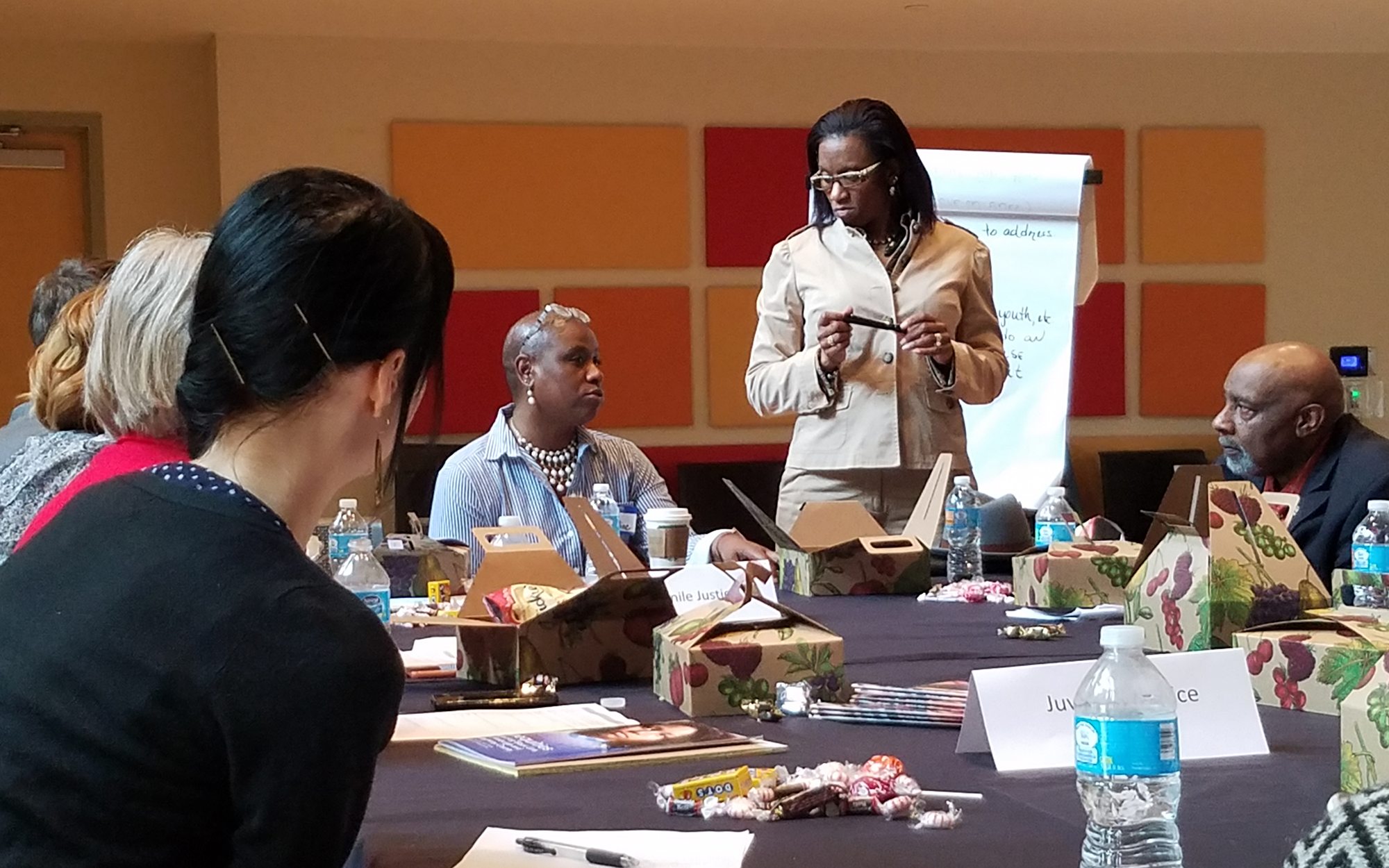Reports and data do not bring solutions. Actions do. And Pittsburgh leaders advocating against deep-rooted inequalities the region’s black girls face in our region know it.
They also know too well that the Pittsburgh region fails black girls.
For instance, black girls in Allegheny County get referred to juvenile court 11 times more often white girls. That’s far worse than the inequality nationwide, and is only one of many interconnected barriers that Kathi Elliott, executive director of Gwen’s Girls, a nonprofit that supports girls and young women, hopes can change if institutions realize how they’re feeding inequality.
“It’s not that we feel that these entities just don’t want to address the issues,” Elliott said at a Thursday gathering of the newly named Black Girls Equity Alliance at the Hill House Association in the Hill District. “Sometimes they don’t have the resources or don’t know how.”
So, how do you shift from wanting to fix something to making actual change? It requires bringing together institutional leaders focused on four main topic areas — justice, education, health and welfare — to brainstorm specific, actionable changes with youth advocates and academics.
The alliance’s goal is to “eradicate inequalities” facing black girls in the county. For now, it’s looking at small, concrete steps.
The Thursday meeting was a follow-up to an October equity summit hosted by Gwen’s Girls. The summit started the initiative with a presentation of data on inequalities, and in the six months since, four smaller working groups have been meeting to discuss topic-specific solutions, with the full group of about 50 stakeholders joining together for Thursday’s event.
“A lot of times people have those conferences and things, and they don’t go anywhere,” said Kim Booth, director of the community intensive supervision program for Allegheny County Juvenile Probation.
Booth is co-convener of the alliance’s juvenile justice working group, which is looking at specific data on how black girls get pushed into the system, including who is referring them and for what specific charges.
With that knowledge, the group can outline internal changes to make the process more fair.
The work is ongoing, but Elliott described solutions like providing training and raising awareness among police officers and magistrates about the inequalities so that black girls aren’t unfairly referred to the system, where they are less likely to receive lenient treatment, compared to white girls.
Booth’s group is also brainstorming ideas for community focus groups so that residents and the girls impacted by disparities have a say in the solutions.
Elliott said she is heartened that institutional leaders, such as Booth and representatives from Pittsburgh Public Schools and the county Department of Human Services, are directly involved.
“That’s the encouraging part, that they are partners in this,” said Elliott, whose organization provides education and social services to girls, including those who’ve been through the child welfare and juvenile justice system.
Collaboration across topic areas is also key to success.
For instance, juvenile justice doesn’t just involve police and prosecutors. It’s closely linked with the school system, where black girls disproportionately face harsher discipline for behavior identical to their white peers.
“Every one of these partners is saying, we have a concern as well,” Booth explained. “How can we help you address it?”
Now that they’ve met again, picked an official name for the group, and a bold mission to eradicate the inequality, Elliott said the goal is for the four groups — focused on juvenile justice, education, child welfare and health and wellness — to make progress on specific goals each is identifying. The alliance is planning to reconvene for a second equity summit later this year.
“The first step is educating and heightening the awareness,” Elliott said, “but then also identifying tangible action items.”
Reach Jeffrey Benzing at jeff@publicsource.org. Follow him on Twitter @jabenzing.
